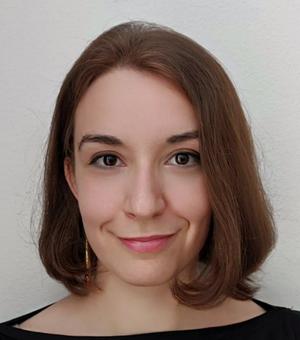Alessia Zubani
Faculty/College
Faculty of Asian and Middle Eastern Studies / Wolfson College
Biography
Alessia Zubani is a Newton International Fellow in the Faculty of Asian and Middle Eastern Studies, a Research Fellow at Wolfson College, and a Research Associate at the French Institute for Anatolian Studies (IFEA) in Istanbul, Turkey.
She holds a joint PhD in History and Cultural Heritage Studies from the École Pratique des Hautes Études-PSL, France, and the University of Bologna, Italy (December 2020). In 2021, her dissertation received the Prix de thèse de la Chancellerie de Paris and the Prix de thèse PSL.
Previously, she has held postdoctoral fellowships at the University of Bologna (2021), the Excellence Research Cluster HASTEC in Paris (2021-2022), and the École des Hautes Études en Sciences Sociales, Paris (2022-2023).
Research Interests
History of science and technology in the late antique and medieval Middle East
Automata and mechanical devices
Cultural, intellectual, and political history of late antique and medieval Middle East
Global Middle Ages
Digital Humanities
Links
Current Projects
The project explores the interplay between technology and power in the late antique and medieval Middle East. Drawing on a heterogeneous corpus of sources, from textual records in several languages to archaeological data and iconographic evidence, it demonstrates how rulers were aware of the political significance inherent to the display of technical prowess. Mechanical devices, such as automata, mobile and singing statues, and water clocks, were on display in the courtly environment. To date, such contrivances have regularly been interpreted as court divertissements. By contrast, my project contends that these objects played a very serious role in court society, appearing as a vehicle of representation and diffusion of political ideology. By reassessing the place reserved at court to mechanical devices, my project opens new research avenues in the overlap between history of sciences and politics and breaks new grounds in the study of late antique and medieval mechanics.The project explores the interplay between technology and power in the late antique and medieval Middle East.
Recent Publications
Edited volumes:
2022 Antonio Panaino. Abēbīm “fearless”. Who Was Afraid of the End of the Millennium? New Approaches to the Interpretation of the Traditional Date of Zoroaster, Milan, Udine, Mimesis.
2020 Boris N. Zachoder. Il Khurāsān e la formazione dello stato selgiuchide, Russian translation by Paolo Ognibene. Milan, Udine, Mimesis.
2017 [with F. Calzolaio, E. Petrocchi, and M. Valisano], In limine. Esplorazioni attorno all’idea di confine, special number of the journal Studi e Ricerche, Venice, Edizioni Ca’ Foscari.
Peer-reviewed articles
2021 “Truth or Dare? Ludic Automata in Medieval Islamicate Courts”, Ludica. Annali di storia e civiltà del gioco 27, p. 73-84.
2017 “La trasmissione del modello regale iranico in epoca islamica: il caso del Testamento di Ardašīr”, Studi e Ricerche, 9, p. 69-90.
Book chapters
2022 “Masʿūdī and the Chronology of the Arsacid kings”, in Alessia Zubani (ed.), Antonio Panaino, Abēbīm “fearless”. Who Was Afraid of the End of the Millennium? New Approaches to the Interpretation of the Traditional Date of Zoroaster, Milano, Udine, Mimesis, p. 175-196.
2020 “Boris Nikolaevič Zachoder (1898-1960). Un profilo storico-scientifico”, in Alessia Zubani (ed.), Boris N. Zachoder. Il Khurāsān e la formazione dello stato selgiuchide, Milan, Udine, Mimesis, p. 15-26.
Encyclopedia entries
Forthcoming “Boris Nikolaevič Zachoder (1898-1960)”, in Encyclopaedia Iranica [peer-reviewed].
Publications in Progress:
Monograph
Engineering Empire: Technology and Power in Medieval Eurasia, under preparation.
Articles
- “Masters of mechanics: Exploring the science of ingenious devices in the Abbasid Empire”.
- “The King of Things: Technological Wonders at the Sasanian Court”.




